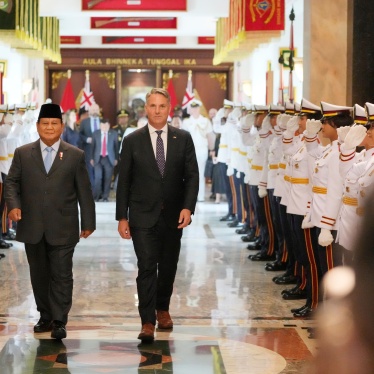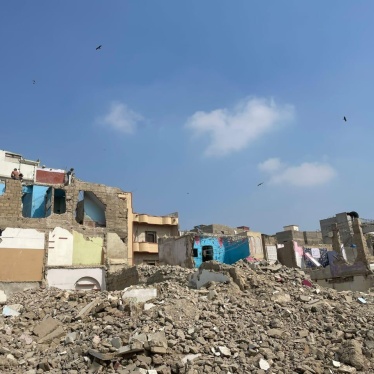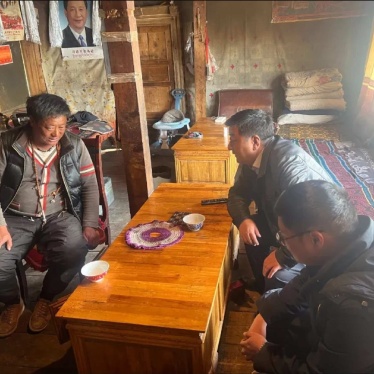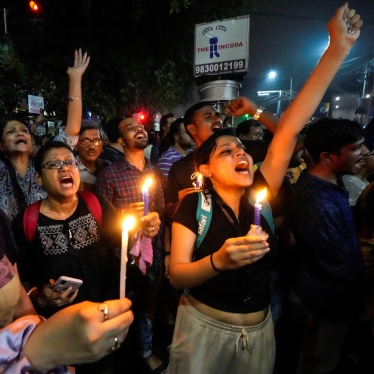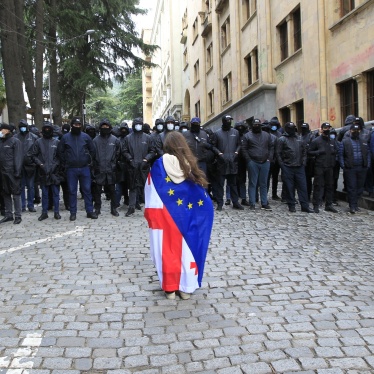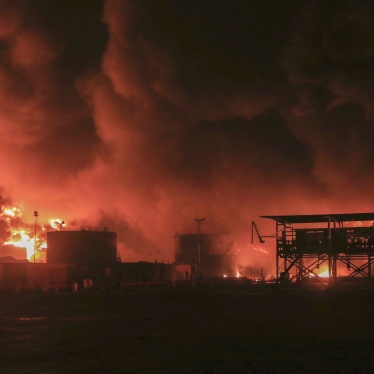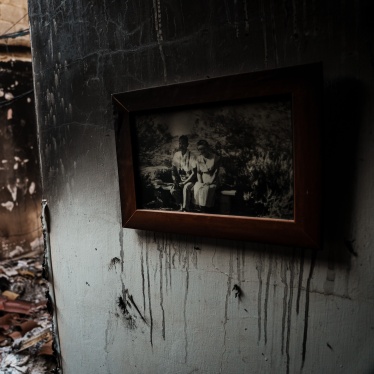(Geneva) – Nepal’s long-awaited transitional justice law, adopted by the lower house of parliament on August 14, 2024, incorporates many positive provisions that could help in advancing justice, accountability, and redress for the widespread human rights violations and abuses committed during the 1996-2006 conflict, but still has elements that could undermine a successful outcome, Amnesty International, Human Rights Watch and the International Commission of Jurists said today.
To ensure the integrity of the process and bring the law into compliance with Nepali and international legal standards, serious accountability gaps need to be addressed by lawmakers. In addition, all institutions involved in the administration of justice – including the courts, the transitional justice commissions, and the Attorney General – should make sure to construe the bill in accordance with international law and Nepal’s Constitution.
“Transitional justice in Nepal is long overdue, and the new law can be an opportunity to finally deliver justice for victims, strengthen the rule of law, and create a positive precedent for the region,” said Meenakshi Ganguly, deputy Asia director at Human Rights Watch. “This should not turn into yet another exercise in which victims are encouraged to accept compensation without truth and justice.”
A previous attempt at a transitional justice law, which provided the possibility of amnesties for serious crimes, was found by the Supreme Court in 2015 to be unconstitutional and in violation of Nepal’s international human rights obligations. While the new law includes several significant improvements and positive provisions, parts again appear designed to shield those responsible for wartime crimes from prosecution.
In Nepal, many survivors and families of those subjected to violations and abuses have lived in hardship for years, often suffering lasting mental and physical injuries, in desperate need of reparations, while struggling to learn the truth about their loved ones, to receive official recognition, and to see the perpetrators brought to justice. The lack of accountability for serious crimes under international law has contributed to ongoing rights violations and a wider crisis of impunity.
“Victims have been waiting for full acknowledgement of the harms they have suffered and reparations for almost 20 years. For a transitional justice process to accomplish its aims, all of the five essential pillars of this process – truth, justice, reparation, memorialization, and guarantees of non-recurrence – must be pursued,” said Mandira Sharma, senior international legal adviser at the International Commission of Jurists. “Current gaps in this law could serve to threaten the outcome of the process and defeat the purpose of providing effective remedies to victims.”
The transitional justice bill envisages a major role for donor funding to implement the process. Once it is finally adopted as the law, donors and the Nepali authorities should develop and implement a system for oversight of the management of funds to support transitional justice. This will facilitate access to expertise and safeguard against political and other unwarranted interference, particularly in the handling of justice and reparation processes. The vagueness of the law on some points, and lack of detail in many areas, mean that interpretation and implementation of the mandates of the Truth and Reconciliation Commission and Commission of Investigation on Enforced Disappeared Persons will be critical. The appointments of highly qualified and independent commissioners, and of the Truth and Reconciliation Commission secretary, will be especially important early decisions.
It is critical that the transitional justice process be implemented in a robust and independent fashion, and that safeguards are established to achieve credible and durable outcomes. Past Nepali governments have repeatedly failed to deliver truth, justice, and reparations for conflict-era atrocity crimes. Transitional justice is a major outstanding commitment of the 2006 Comprehensive Peace Agreement, which ended a decade-long armed conflict between the then royal government and Maoist rebels, and inaugurated a peace process that included constitutional reform.
“In the past, the commissions have failed to win trust from victims due to repeated political interference in the appointment of the commissioners,” said Smriti Singh, South Asia director at Amnesty International. “The commissioners must be trusted by victims’ groups for their work to be effective and credible. This requires victims’ rights and views to be at the center of a fully transparent nomination and appointment procedure. Commissioners must be competent, impartial, and fully independent from any political party.”
Shortcomings in the law
The new law, officially titled A Bill to Amend the Disappeared Persons’ Enquiry, Truth and Reconciliation Commission Act, 2071, widely referred to as the transitional justice bill, was introduced in parliament in March 2023, and finally passed in the lower house with the support of Nepal’s three largest political parties following protracted negotiations. However, there has been little formal consultation with civil society and victims or their families, who hold a range of views on the legislation. While all agree that progress towards addressing their rights and needs has been unacceptably protracted, many also continue to voice concerns that the law as presently drafted might not deliver justice, calling for reform of the bill.
Under the current bill, crimes committed during the conflict are either classified as “violations of human rights” or “serious violations of human rights.” While offences defined as human rights violations could be granted amnesty, “serious violations of human rights” could be referred to and prosecuted in a special court. The definition of “serious violations” is limited to “rape or serious sexual violence;” “intentional or arbitrary killing;” enforced disappearance, provided that the victim’s whereabouts remains unknown; and “inhuman or cruel torture.” However, these definitions are not consistent with international law and exclude other serious crimes. For instance, the prohibition of torture and the requirement that it be criminalized is absolute and there can be no qualification for “inhuman or cruel” torture, since torture by its nature is inhuman or cruel.
The law defines “violations of human rights” as “any act except serious human rights violations committed in contravention of Nepali laws, international human rights or humanitarian law” (emphasis added). In previous iterations of the law, this category of crimes was completely excluded from prosecution. In the current version, it appears that the special court can adjudicate violations of human rights (not defined as “serious”) that are not granted amnesty, which the Truth and Reconciliation Commission can provide if the alleged perpetrator fulfills certain conditions (such as disclosing the truth, making an apology to victims, or paying compensation), and with the consent of the victims. However, the language of the law is imprecise, and while an expansion of the mandate of the special court is an improvement, any amnesty for serious crimes is contrary to Nepali and international law and standards and violates victims’ right to effective remedy and reparation.
The law also requires that both categories of violations (defined as “serious” and not) – except for rape and “serious sexual violence” – are committed “in a targeted or planned manner against an unarmed individual or community.” This could exclude many cases not only from any criminal accountability but also other measures under the bill, such as civil and administrative remedies and reparations.
These provisions create a large accountability gap for many crimes under international law, including possible crimes against humanity and war crimes, contrary to Nepal’s Constitution and its international legal obligations.
A provision which was added to the law during the final phase of negotiations would allow for the attorney general, excluding in cases of rape or “serious sexual violence,” to make a binding request for a 75 percent reduction in the sentencing for those convicted of serious violations. This provision, amounting to a disguised amnesty, contradicts the principle that criminal sanctions must be proportionate to the gravity of the crime, and also undermines the fundamental role and competency of the judiciary. The court should decide what reduction may be appropriate, if any, based on its own consideration of the facts and submissions by the parties to the proceedings.
The law now permits the special court to adjudicate disputes related to reparations, an important expansion of its role. However, it still provides for the appointment of only three judges to the special court, which was envisioned when the court’s jurisdiction was more limited. With the expansion of the jurisdiction of the court, the number of judges should be increased to fulfill its expanded mandate.

